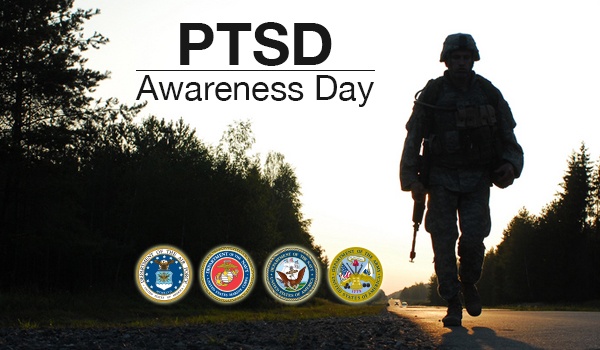
Current U.S. statistics show that over 70% of adults will experience a traumatic event at some point in their lives. Needless to say, this is also true in the military community. Post-traumatic stress disorder can affect anyone, at any stage in life, and is an extremely important issue that deserves national attention. For this reason, the U.S. Senate in 2014, named the month of June PSTD Awareness Month.
At US Family Health Plan – a TRICARE Prime health program – we view health as holistic. This means that we promote both physical and mental health. We strive to encourage you and your family to adopt a healthy lifestyle that promotes wellness and address any health issues promptly – be they physical or mental. So today, we are putting the information spotlight on PTSD as a health issue that deserves more attention.
There are a number of myths about PTSD that need to be debunked. They actually prevent those who may be experiencing PSTD, from getting the treatment and support they need and deserve. While public awareness of PTSD is high, people are low on understanding the real facts. Today we are shining a spotlight on those facts by debunking 6 important misconceptions about PSTD that need to be addressed as soon as possible.
- Only combat veterans get PTSD. Far from true. Current estimates are that 7.7 million American adults have experienced PTSD. Many of these people are civilians as well as military service members. Anyone who has been exposed to a traumatic incident could develop PTSD. Natural disasters, accidents, financial calamity, loss of a loved one, and near-death experiences are just a few of the events that can lead to PTSD. Needless to say, combat conditions also can lead to this condition.
- Everyone who experiences a traumatic event gets PTSD. It is important to know that everyone has a different reaction to stress. Some people experience short-term distress after a traumatic event and their symptoms clear up in a relatively short period of time. Some people thrive in stressful situations and grow stronger in order to rise to the occasion. However, many of us have difficulty dealing with highly stressful situations, which can result in PTSD. Each person is different and that is completely okay. This is neither good or bad, just a fact. What’s important is that if you feel you do need help because you are having difficulty dealing with a traumatic situation, you should immediately speak to a professional about it. The help is there.
- People who get PTSD are weak. Not so. PTSD has nothing to do with mental strength or weakness. While there are some are at greater risk of developing PTSD, many of these factors that determine these risks are far outside of a typical person’s control. One of the biggest risk factors is caused by traumatic situations which cause a person to feel a sense of helplessness. Examples include being stuck on a hot bus for hours on a highway or experiencing being taken as a hostage. By contrast, traumatic events where a person has the ability to extricate themselves, like escaping from a fire, is much less likely to result in PTSD. Importantly, those with a history of clinical depression may also be at greater risk to develop PTSD after experiencing a traumatic event.
- PTSD is uncommon and hard to treat. PTSD should not be considered some horrible, stigmatizing condition that only a few have to live with. Remember, more than 70% of all Americans have encountered trauma at some point in their lives. Over 7 million have been diagnosed with PTSD. It is unlikely that any of us will go through life without experiencing some form of trauma. That said, for people who do develop PTSD, the symptoms can be debilitating and put them at risk for divorce, unemployment or even suicide. So reaching out for professional trained in this area, is extremely important. PTSD is treatable and the resources are there to help you. Put your well-being and future in the hands of a capable professional. This can make a huge difference in your life.
- Treating PTSD is difficult. To the contrary. While there is no single medication to cure PTSD, there are highly effective medications that can help reduce the symptoms. Antidepressants, anti-anxiety medication, and sleep-aids as well as therapy, all can play a role in reducing symptoms in the short run. Over time, psychotherapy can play an important role in the ultimate recovery of PTSD and a return to normal life.
- PTSD is a private issue and should be managed alone. Like other mental health issues, people mistakenly feel there is a stigma attached to admitting one is having trouble coping with everyday life. When this attitude prevails, PTSD can take a serious toll on individuals and their families. It can affect every area of your life, including work, family and your social life. In-service trainings and open conversations about PTSD can help individuals better cope with the issue and find the treatment and support they need. Trying to cope with this difficulty in secret will prevent you getting the help that is out there and that you need.
This month, if you feel like you may be experiencing symptoms of PSTD, or if you have a loved one you think is struggling with this condition, US Family Health Plan urges you to reach out for the help you need. The U.S. Senate believed this issue to be so important that a whole month is dedicated for everyone to become more aware and compassionate about PTSD. This is the time to act – without worry, without secrecy, and without feeling ashamed – and consult with your doctor about your condition. It can make all the difference in the world.
